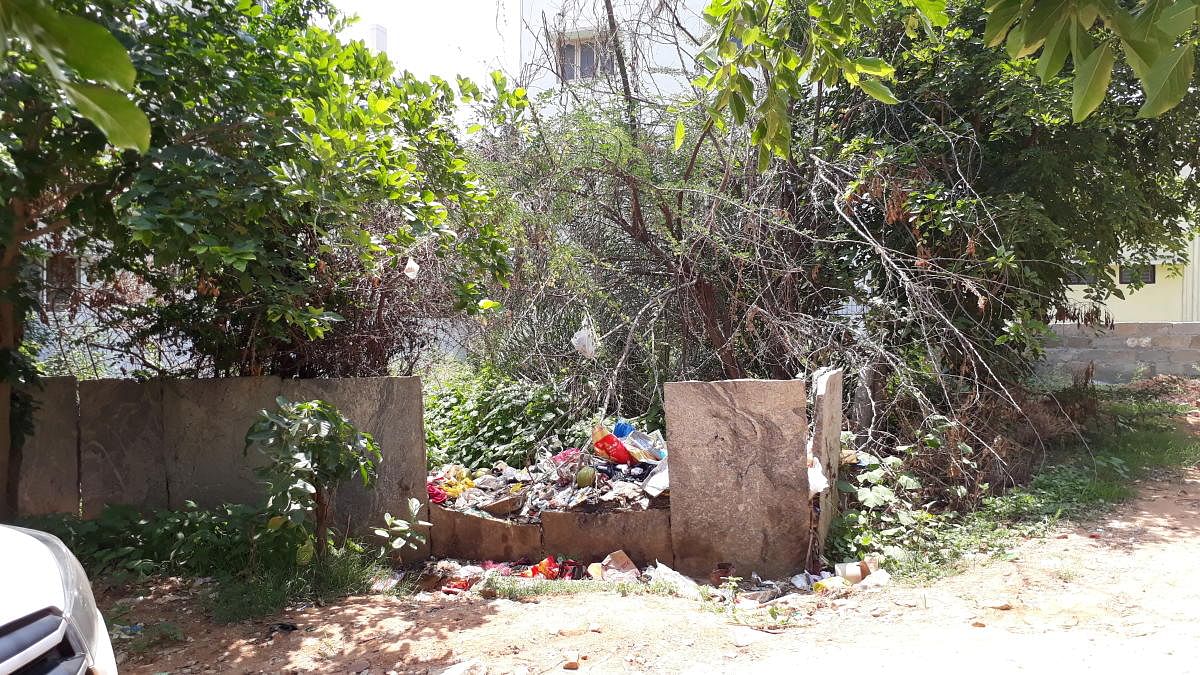
The BBMP is threatening to penalise owners of vacant sites if waste is dumped on them. The Solid Waste Management (SWM) department of the BBMP recently passed an order in this regard, alarmed by the practice of garbage and construction debris being heaped on housing sites.
The order also raises the penalty from the current Rs 100 to Rs 25,000. Any repeat offence could invite a penalty of up to Rs 1 lakh.
According to the order, the zonal additional and joint commissioners will issue notices to owners of vacant plots asking them to clear the debris within 15 days, failing which the BBMP would undertake the cleaning and collect Rs 25,000.
Randeep D, special commissioner for solid waste management, BBMP, told Metrolife several sites across the city were turning into black spots.
“Our officials are hesitant to enter private property because we don’t have the funds to clean them. And secondly, entering private property involves legal issues,” he says.
The order now holds the owner responsible for what is dumped on the site.
“If the owner fails to act, the jurisdictional officials will clear the sites with the help of tractors and pourakarmikas,” he says.
The BBMP will collect the penalty by adding it as property tax dues, Randeep says. The authorities are also concerned about garbage being burnt on sites, as that adds to air pollution and becomes a health hazard. “We will cover all 198 wards across the city,” says Randeep.
Citizen groups welcome the move, but say the BBMP has a poor record when it comes to enforcement.
Srinivas Alavilli, co-founder of Citizens for Bengaluru, says, “Numerous such initiatives have been rolled out in the past. Enforcement is weak and therefore the problem continues.”
Such initiatives must involve ward committees. BBMP’s model of waste pickup is not working on the ground, he reckons.
“Sometimes people are forced to dump garbage because they have no other way to get rid of it,” he says.
If the BBMP can penalise citizens, it should also be able to penalise its own enforcement officers.
“Ward-level sanitary and health inspectors must be penalised according to the number of black spots found in their area,” he adds.
Dumps breeding grounds for disease, says IISc expert
T V Ramachandra of the Indian Institute of Science says continued exposure to burnt garbage affects health. Here’s what he has to say:
How does dumping affect health?
This is a violation of Solid Waste Management Rule of 2016), and highlights the lapses on the part of city managers and regulators. Sustained dumping leads to the contamination of air, water and land. The locations become a breeding ground for disease vectors, with recurring instances of chikungunya, dengue, and so on. Sustained consumption of contaminated water and vegetables grown with it makes the public vulnerable. Tolerance of the public to mismanagement of solid waste could be due to lack of awareness about the consequences.
How can citizens help in reducing these problems?
Our study shows that Bengaluru waste consists predominantly of 70 to 80 per cent organic and 12-18 per cent plastic and paper. Segregation of waste at the source helps in recovering the organic and recyclable elements.
BBMP fiat to plot owners, tenants
- Fence property properly.
- Prune green fences.
- Prune tree branches posing danger to traffic.
- Reduce height of compound walls blocking motorists’ view.
- Keep plot well-lit.
- Don’t burn garbage.